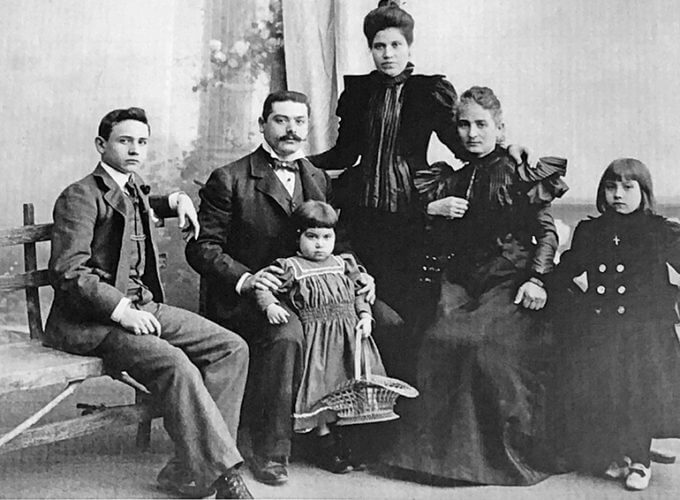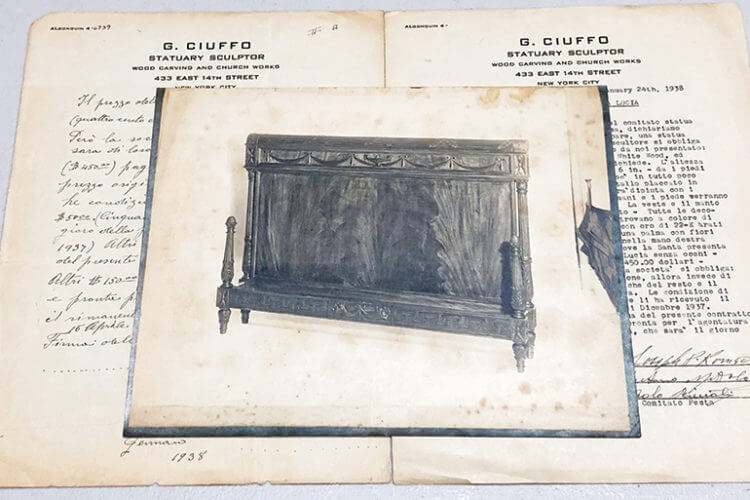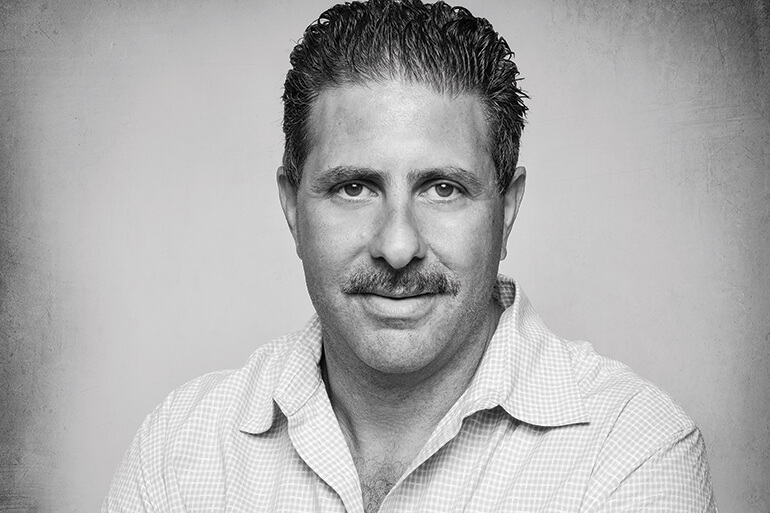Merging old-world craftsmanship and the requirements of a large, booming business is a challenging prospect for any artisan, even with generations of family history behind them. The road to achieving this difficult balance is littered with wreckage from compromised ideals and failure, but the rare and ambitious few who succeed, stand poised to accomplish anything.
For Gary Ciuffo of Ciuffo Cabinetry, preserving his family name and reputation–established over a century of custom woodworking in America, since his great grandfather Gaspare Ciuffo set roots here in 1907–has remained fundamental to the business. Through decades of hard work, keeping one foot firmly planted in the past and another in the future, the carpenter and businessman has carefully grown Ciuffo Cabinetry into a sizable company with 50 employees, ever-expanding facilities and no indication of slowing down or allowing the quality to suffer.

“There’s nothing we build that’s not custom or unique. It’s why they come to us. It’s all made here. It’s got a lot of eyes on it,” Ciuffo says, describing a process that begins at the scratchboard and then moves into computer programs and their factory before reaching the finishing stage. From there, Ciuffo’s team delivers and installs the cabinets at customers’ homes. “There’s no limit, from a whole tree slab that needs to be butterflied and reconditioned and then sent out as a tabletop, to a high-gloss, Italian lacquered kitchen–we do the whole spectrum.”
Today, Ciuffo Cabinetry incorporates this modern computer technology with time-honored tools and techniques to create custom cabinets and more for homes in the Hamptons and Long Island, New York City and the surrounding areas, and far beyond. But, like any good craftsman, Ciuffo started at a young age, learning to do it all by hand.

“I started going to work for my father as soon as I could help him, which was probably 10 years old,” Ciuffo says. “Of course, an Italian family, you work when you can walk.” He spent years alongside his father Gaspar Ciuffo and other knowledgeable men in their Deer Park shop, learning through hands-on labor before starting in earnest right out of high school. “I just kept going at it and going at it,” Ciuffo says. By his late 20s, he was ready to take the reins and bring a new generation of growth and prosperity to his father’s business.
“He basically took a backseat and semi-retired,” Ciuffo says of his father. “Back in the mid-80s when I got out of school and I started full time, I jumped in with two feet, and that’s when I started really telling my father we’ve got to modernize and move forward, and get bigger and bigger. He didn’t want to get bigger and better–he wanted to stay where he was,” Ciuffo adds.
In spite of his father’s reservations, Ciuffo kept his eye on the prize and moved forward with his plans. He quickly built up the business from four employees to between 10 and 15. They eventually outgrew their shop, and Ciuffo purchased a building across the street in about 1998 or ’99. “We’ve been here for 20 years, and now we’re at just under 50 employees.”
Ciuffo says his business is once again on the cusp of a new era. Along with training his son Joseph to take over, and opening an appointment-only showroom in Southampton, the company is moving to Bayport early next year. After decades in Deer Park, Ciuffo Cabinetry is headed to a massive, 32,000-square-foot facility that’s more than triple the size of their current space. In addition to accommodating a swelling workload, the Bayport location will boast a Ciuffo museum displaying objects, pictures and ephemera from his family’s long, proud history of woodworking.
“We have a very wide but connected web of Ciuffo family throughout the country that’s still connected and involved with woodworking,” Ciuffo says, explaining that he’s become a sort of repository for family heirlooms and relics, from his great grandfather’s church carvings and full-size statuary, to treasures from his factories in Manhattan and Brooklyn, including Gaspare’s workbench and 300-piece carving set. “So the history is deep. It’s deep rooted and deeply respected, and definitely handed down from generation to generation,” Ciuffo says. “We’re proud to have and use the name. I never really fathomed that it would carry on a whole other generation. It’s the fifth generation in America.”

Ciuffo is thrilled that his 30-year-old son and vice president is keeping the family business in the family. “It’s very rewarding and it’s a great feeling. It takes a special kind of person to not only do this kind of business, but to have the interest and the love, and the skill to pull it off,” he says. “You have to constantly be on the men who are fabricating, the team of designers who are designing with and under us, the customer relations, the installations–the whole process is really spearheaded from the top. It’s not like we rely on other people for that. We control it ourselves, Joe and I.”
As his father’s successor, Joe, too, has had to learn to work with wood and carry on the family traditions. “We say it takes 20 years minimum to really know many of the details. He’s 30. He’s been doing it half his life,” Ciuffo says of his son. “He knows everything about it. You ask him a question or ask him to figure out how to do something, he knows it. It’s in his blood.”





















